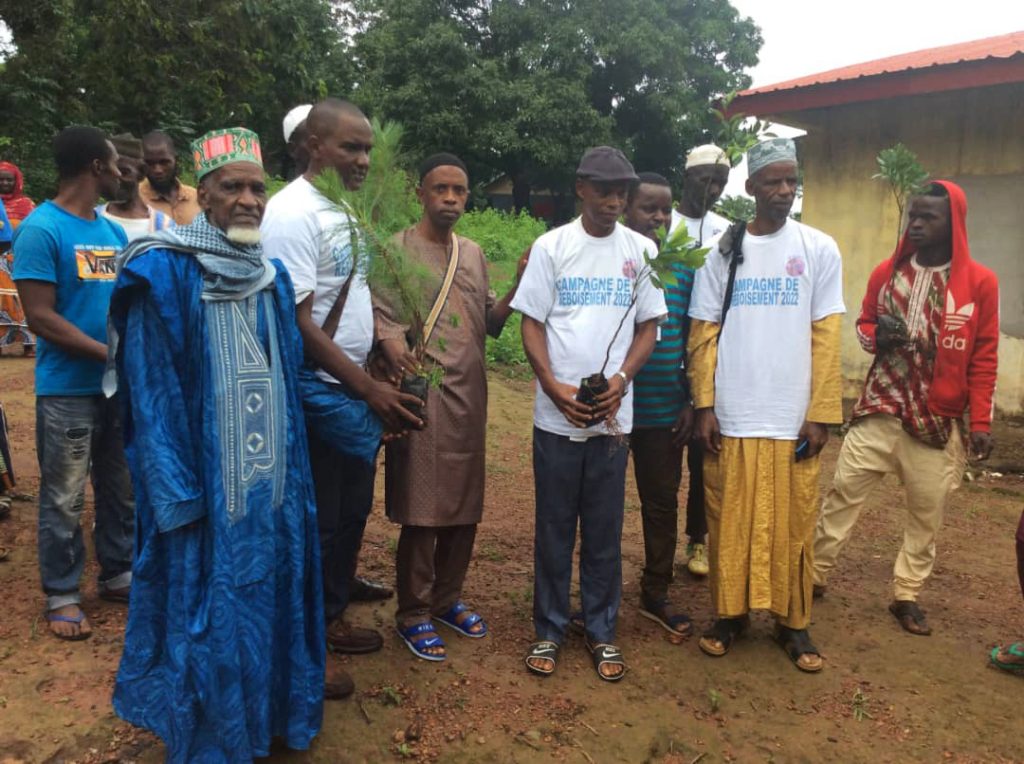Meet Alpha Ibrahim Bah, a high-level policymaker who wishes to make his country prepared for future climate upheaval. Join us as he strides to build Guinea’s and Conakry’s climate resilience.

Alpha Ibrahima Bah is a national project coordinator of Guinea’s Third National Communication on Climate Change. As an established practitioner who seeks to build the climate resilience of his country and home city, Alpha has worked with The Hague Academy multiple times to build upon his skill set, first with the Local Climate Response course in 2021, and recently with the Urban Governance: Resilient & Smart Cities course in 2022.
Conakry is the capital and economic, cultural, and financial centre of Guinea. A crowded city on a peninsula jutting out into the Atlantic, Conakry is also one of the most climate-vulnerable locales in the country.
Alpha tells us that Guinea needs to undergo systematic change to become climate resilient. In many cases, both policies and infrastructure need to be built from scratch. Join us in learning how Alpha will support the groundwork for Guinea’s sustainable future.
Laying the Groundworks
Guinea’s national communications on climate change aim to form detailed policy and inform the country’s officials and practitioners on the way forward. As part of this communication, for example, it is increasing Guinea’s ambitions through the Paris Agreement’s Nationally Determined Contributions (NDC), aiming to abate its greenhouse gas emissions and achieve national low-carbon urban policies. To support this, Alpha organises workshops, field tours, public debates with lectures, school competitions, and so on to raise discourse and awareness at multiple levels.
As Alpha explains, “Our government is increasingly aware of the importance of well-managed cities and is formulating national policies for low-carbon urban development. Guinea is currently establishing policies that directly or indirectly improve urban mobility, energy use, and waste management”.
Consequently, Alpha’s eagerness in participating with The Hague Academy is to build his knowledge and capacity in grappling with urban resilience. As project coordinator of Guinea’s National Communication on Climate Change, and now a member of the recently-created National Council for Climate Change, Alpha stands to directly share in his country the lessons learnt, through policy knowledge dissemination and practical workshops.
At The Hague Academy
As Alpha explains, working with The Hague Academy “was an opportunity to enhance my background and increase my ability to develop sustainable integrated urban planning, to measure the vulnerability of cities in Guinea, to mainstream climate adaptation measures for cities, and to propose solutions for the energy transition in Guinean cities”.
Among the tools Alpha highlights from the course was Climate Vulnerability and Capacity Analysis (CVCA), which takes an integrated approach to disaster risk reduction, ecosystem management and climate change adaptation. This is the tool that Alpha will use for conducting Guinea’s country-wide vulnerability assessment under the Third National Communication. “The assessment will begin in January 2023”, he says.
Alpha was also excited to share a new initiative inspired by the Green Village at TU Delft, which he visited as part of this year’s course. Building upon the idea of communal collaboration in cultivating green spaces, Alpha has plans to reassess areas near the city that are no longer green: “we bought fruit trees (mangoes, oranges, lemon, or avocados) for people to plant near their houses. The budget was prepared and presented to the community through WhatsApp groups, where they agreed to the idea”.
Alpha shared with us a direct impact his participation in our Urban Governance course will have on his work back home:
“After the course, I will assist the Ministry of Environment in the elaboration of low-carbon urban policies. Furthermore, our country lacks qualified experts in building sustainable cities. Therefore, after completing this course, I will help in coordinating activities within the Ministry of Environment to promote climate change resilience in Conakry and coastal cities. These activities will include designing urban policies, education, training and public awareness conducted”.
Towards a Resilient Future
Within the width of Alpha’s responsibilities, he intended to use his time with The Hague Academy as an opportunity to directly influence Guinea’s climate resilience. Choosing a good place to start as any, Alpha has designed a Back Home Action Plan centred on waste management in Conakry. The plan will focus on awareness raising around waste management best practices. “Fortunately,” he says, “I managed to secure a budget from the ministry for these activities, which are set to start in April 2023”.
His waste management initiative is just among the first steps Alpha needs to take to increase Conakry’s climate resilience and long-term health. In the future, he aspires to promote sustainable transport options in cities, improve the economic resilience of local communities, and completely modernise waste management. All these initiatives, he says, are directly supported by his better knowledge of urban resilience.
Join The Hague Academy
Interested in frameworks, strategies and tools to strengthen cities’ resilience? Make sure to join our Urban Resilience or Local Climate Response courses!
Related courses
We offer a diversity of courses throughout the year. Here are several other courses you might like.


